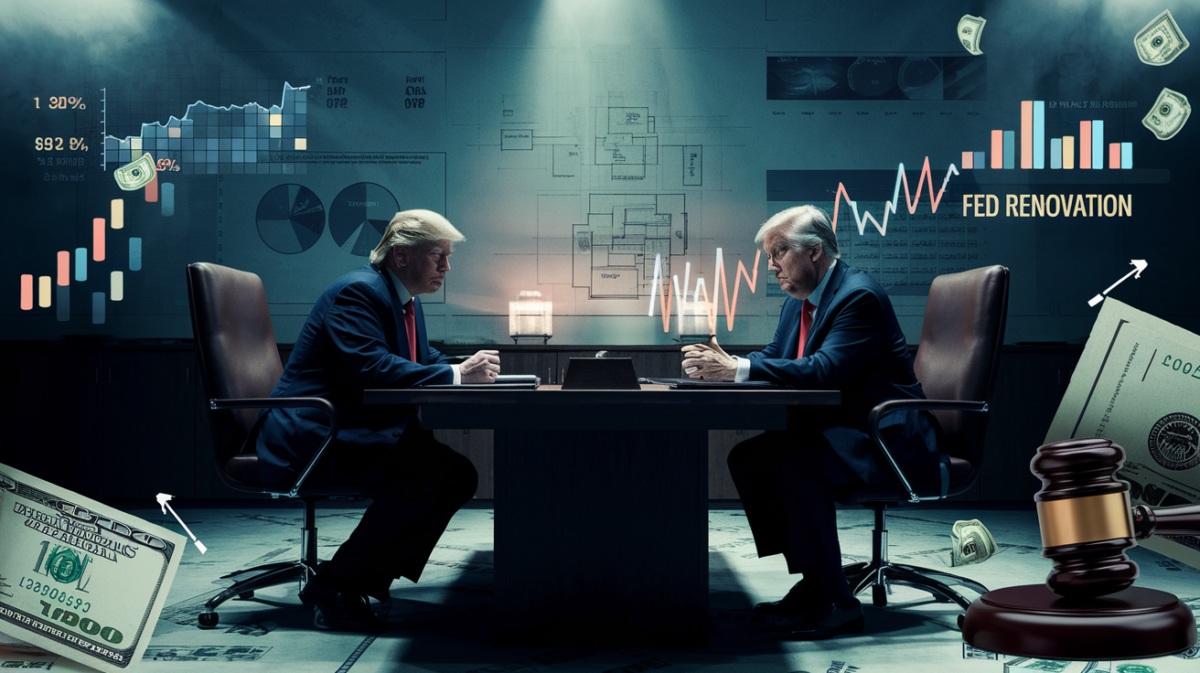President Donald Trump has ramped up his criticism of Federal Reserve Chair Jerome Powell, focusing on the ballooning costs of a $2.5 billion renovation of the Fed’s Washington, D.C., headquarters. Originally budgeted at $1.9 billion, the project has faced significant overruns due to inflation-driven material costs and extensive underground work. Critics, including some Trump-appointed officials who initially advocated for more luxurious materials, now label the spending as wasteful.
The Fed’s Renovation Controversy
The renovation of the Federal Reserve’s headquarters has become a flashpoint in the ongoing tension between Trump and Powell. The project, initially estimated at $1.9 billion, has now exceeded $2.5 billion, with costs attributed to:
- Rising material prices due to inflation.
- Unforeseen underground infrastructure challenges.
- High-end materials, including marble, pushed by Trump appointees.
While the White House now criticizes the spending, some of the same officials had earlier endorsed the lavish upgrades, complicating the narrative.
Interest Rates and Economic Policy
Trump’s frustration with Powell extends beyond the renovation. The Fed has maintained a 4.3% interest rate in 2025, despite earlier rate cuts. Powell has cited economic uncertainty stemming from Trump’s tariff policies and inflation concerns as reasons for caution. This stance has drawn ire from the president, who has repeatedly called for lower rates to stimulate growth.
Potential Consequences of Removing Powell
Legal experts argue that Trump’s authority to remove Powell is limited, with grounds like mismanagement potentially tested in court. However, such a move could:
- Destabilize financial markets.
- Raise long-term interest rates.
- Undermine investor confidence in U.S. fiscal policy.
The Fed’s independence is widely regarded as crucial for maintaining stable, apolitical economic policy, a principle upheld since the tenure of Paul Volcker in the 1980s.
Possible Replacements and Political Shifts
Federal Reserve Governor Chris Waller has expressed willingness to lead the Fed if asked by Trump, though no formal discussions have taken place. Waller advocates for an immediate rate cut, diverging from Powell’s cautious approach. Other potential candidates include:
- Treasury Secretary Scott Bessent.
- Former Fed Governor Kevin Warsh.
- White House economic adviser Kevin Hassett.
Populist Proposals and Their Impact
Fringe proposals to merge the Fed with the Treasury to restructure America’s $37 trillion debt are gaining traction among some right-wing figures. While these ideas remain outside the mainstream, they are influencing debates on monetary policy and government control. Studies suggest that such populist measures, whether from the left or right, often harm economic growth and market stability.
Comparing Powell and Potential Successors
| Candidate | Stance on Interest Rates | Political Alignment |
|---|---|---|
| Jerome Powell | Cautious, maintains current rates | Independent |
| Chris Waller | Advocates for immediate cuts | Trump-aligned |
| Kevin Warsh | Likely moderate | Conservative |
Why This Matters
The conflict between Trump and Powell raises critical questions about the Fed’s independence and its role in shaping U.S. economic policy. While Trump’s criticism focuses on the renovation and interest rates, the broader implications for market stability and investor confidence cannot be ignored. Analysts warn that any move to undermine the Fed’s autonomy could have far-reaching consequences, including higher inflation and economic uncertainty.
As the debate continues, the financial world watches closely, aware that the outcome could redefine the relationship between the White House and the Federal Reserve for years to come.







